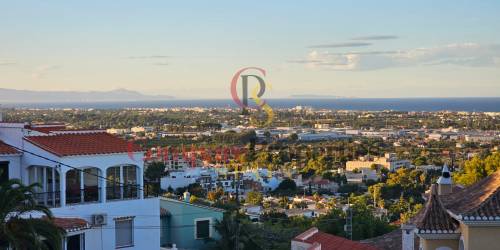
Viewing property in Spain and making an offer
Once you've found a property you like, you'll usually need to make an offer through the seller's estate agent.
As in other countries, prices are open to negotiation; the property's asking price is an indication rather than a demand. Unless the price is particularly attractive or you're competing with other buyers, it makes sense to start negotiations below the asking price, but not so low as to offend the seller.
Basic negotiations on price are often done verbally. Once you reach an outline agreement, you should have your offer summarized in writing.
Hiring a solicitor or notary
The services of a notary are recommended to complete the sale. Having a lawyer to complete the due diligence is highly advised and is required by many mortgage lenders.
The buyer is responsible for registering the property. Your notary will provide this service for a fee, and notify the registry office that the sale has taken place.
Any lawyer practicing in Spain should be registered with the local bar association (Colegio de Abogados). They will have a registration number that you can ask for and then verify with the bar association. Naturally, registration does not guarantee honesty or competence, but it is a good minimum standard to insist on.
Arranging a survey
It's possible to buy a property in Spain without having a house survey, but this isn't advised. A house survey helps you ensure there are no significant defects with the property that could come back to haunt you further down the line.
For existing properties, there are generally two main types of surveys available. A valuation report is a surface-level survey that gives you an independent guide to the property's market value.
A building survey goes deeper, looking at the structural condition of the property and outlining any serious issues. Building surveys are more expensive than valuation reports, but they also provide a more comprehensive guide to the property's condition.
Moving into your Spanish property
Insurance
It's highly recommended that you take out home insurance when buying a home in Spain.
A building insurance policy (which covers the structure of the property against natural disasters, fire, and other damage) is often a requirement for mortgage providers.
Contents insurance (which covers your belongings in the home) isn't legally necessary. It could be a wise investment, however, especially if you plan to rent out your property or you spent a lot of time away from home.
Utilities and telecommunications
Setting up utilities is one of the more tedious tasks when buying a home in Spain. You may find that the previous owner already had policies in place that you can take over.
Waste disposal is managed at a municipal level, with annual fees for rubbish collection. With other utilities, such as gas, electricity, and water, you'll be able to compare deals before settling on a provider.
For some elements of the move, it might be worth hiring a contractor. Make sure you check what qualifications your contractor needs, as some electrical, plumbing, or gas jobs need to be carried out by a professional.
Buying land to build a new property in Spain
For a long time, Spain has been popular with overseas buyers looking for holiday homes. On occasion, large numbers of inexperienced foreign buyers have provided an opportunity for unscrupulous developers and estate agents to sell properties that are not legitimate.
In some cases, planning permission has not been acquired before building, and properties are eventually torn down by the local government. In others, the quality of the property has not been up to scratch or as indicated, resulting in costly repairs. It is for this reason that as an Estate Agency, Compare Properties Spain, always checks the legalities of the property you will be purchasing and checks whether the bank will be able to finance the property prior to arranging any viewings which required finance.
Buying a new-build home in Spain
The worst property scams in Spain, as elsewhere, involve unfinished or unbuilt properties. While malicious intent is rare, caution is advisable when buying a property that does not yet exist. At a minimum, you should:
- Check the company exists and ensure the project is registered with the land registry.
- Check that planning permission has been granted by enquiring at the local city hall.
- Not sign a contract you don't understand.
- Enlist an independent party for any translations.
- Demand proof that any sums paid (e.g., a deposit) are being held or spent appropriately.
- Get proof that you'll get a refund of your money if the property is not built.
As a non-resident, you may also buy land and have a property built yourself. In this case, good legal advice is even more important as you will need to ensure that contracts with builders are appropriate and watertight.












